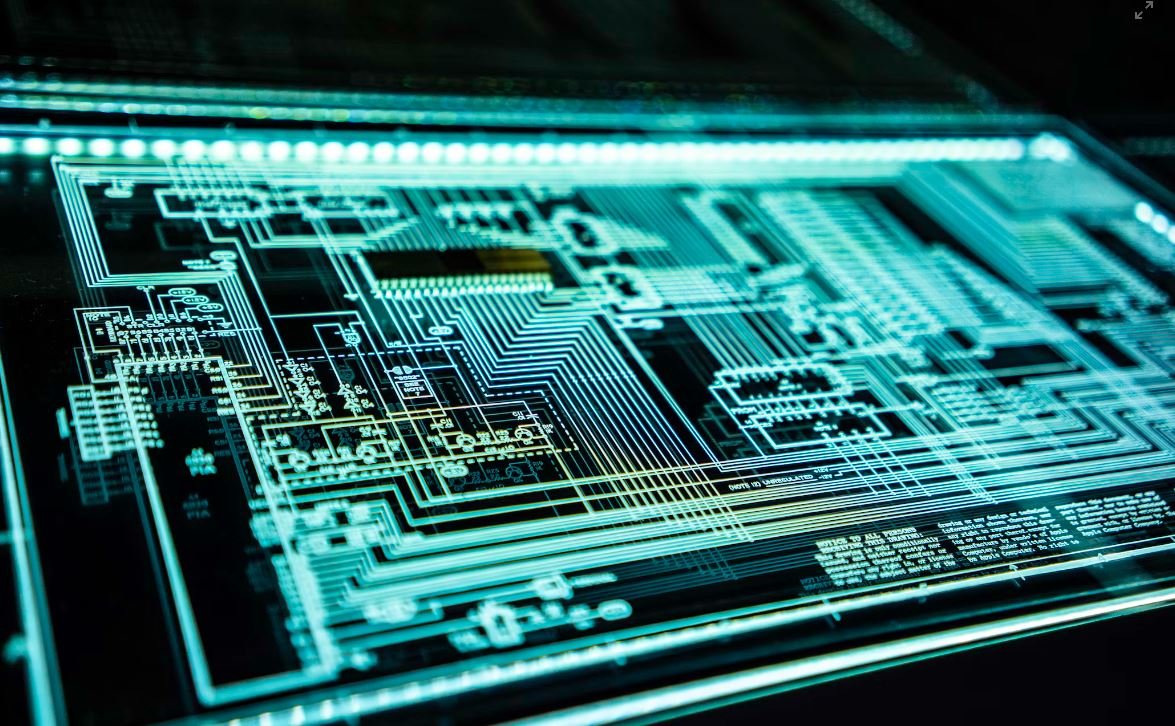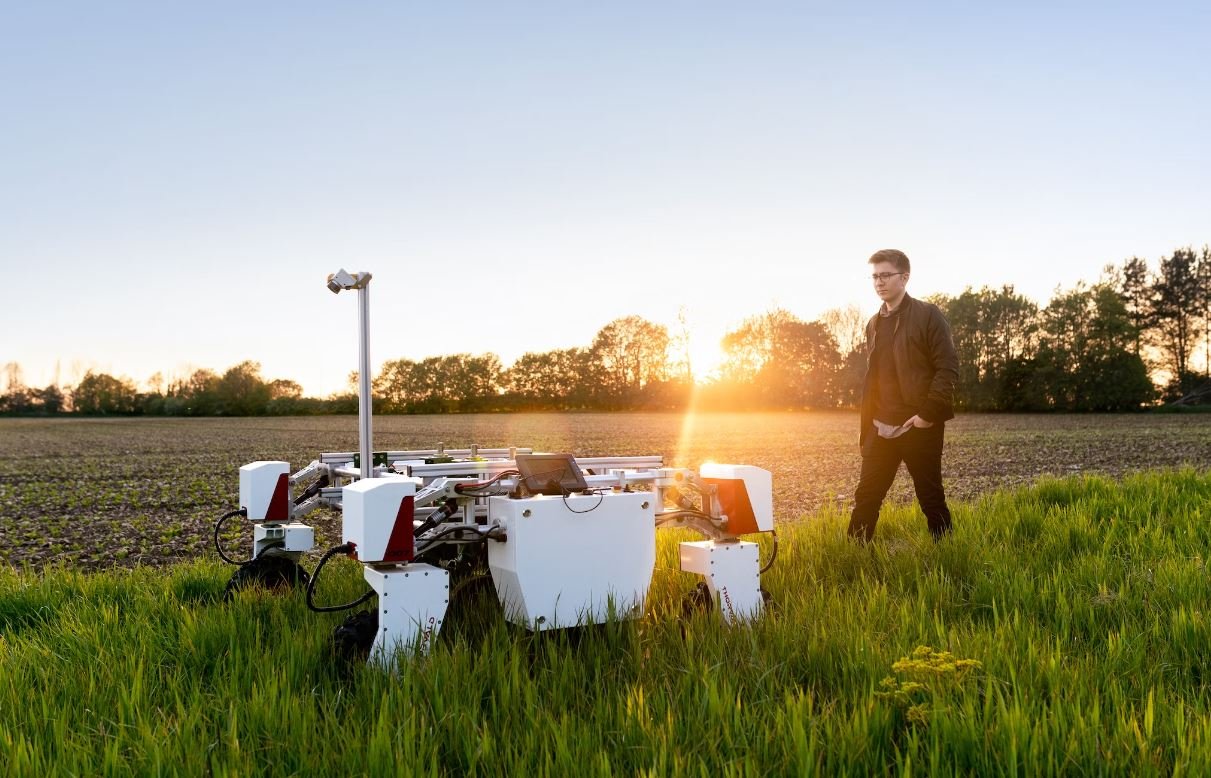AI Applications Use Cases
Artificial Intelligence (AI) has rapidly evolved over the past decade, transforming various industries and revolutionizing the way we live and work. From autonomous vehicles to voice assistants, AI applications have become an integral part of our daily lives. In this article, we explore some of the key use cases of AI and how they are reshaping different sectors.
Key Takeaways
- AI applications are transforming industries across the board.
- Machine learning and deep learning algorithms play a crucial role in powering AI systems.
- AI is helping businesses increase efficiency, improve decision-making, and enhance customer experiences.
**Predictive Analytics**: One of the most common use cases of AI is predictive analytics, where **machine learning algorithms** analyze historical data to identify patterns and trends, enabling organizations to predict future outcomes. *Predictive analytics has proved invaluable in improving sales forecasting and risk assessment in various industries, including finance and retail.* With accurate predictions, businesses can optimize their inventory management and make data-driven decisions to minimize costs and maximize profits.
**Natural Language Processing (NLP)**: NLP refers to the ability of AI systems to understand and interpret human language, enabling communication between humans and machines. *NLP has revolutionized customer support by allowing chatbots to interact with customers, answer queries, and provide solutions.* In addition, NLP is widely used in sentiment analysis, content categorization, and language translation, allowing businesses to gain insights from vast amounts of unstructured textual data.
AI Applications in Different Industries
| Use Case | Benefits |
|---|---|
| Medical Image Analysis | Enhanced diagnosis accuracy Reduced human error |
| Drug Discovery | Accelerated identification of potential drug candidates Improved research efficiency |
| Virtual Nursing Assistants | 24/7 patient monitoring Personalized care |
**Finance**: AI has revolutionized the financial industry by offering advanced **fraud detection** capabilities. *Machine learning models can analyze large volumes of financial data to identify suspicious patterns and flag potential fraudulent activities, helping to prevent financial losses.* Moreover, AI-powered robo-advisors have emerged, providing automated investment recommendations and personalized financial advice to investors.
| Use Case | Benefits |
|---|---|
| Autonomous Vehicles | Improved road safety Reduced traffic congestion |
| Route Optimization | Reduced delivery time Optimized fuel consumption |
| Real-time Traffic Analysis | Accurate traffic predictions Efficient transportation planning |
**Manufacturing**: AI is transforming the manufacturing industry by introducing **predictive maintenance** solutions. *Machine learning models can analyze sensor data from machinery to detect anomalies and predict failures, enabling proactive maintenance actions to avoid costly downtime.* Moreover, AI-powered robots are being used for tasks such as assembly, quality control, and logistics, increasing efficiency and productivity.
**Education**: AI is reshaping the education sector by offering **personalized learning** experiences to students. *Intelligent tutoring systems can adapt to individual students’ needs and provide customized instruction, helping them learn at their own pace.* In addition, AI is being used for automated grading, natural language processing for essay evaluation, and content recommendation systems to enhance the overall education process.
Challenges and Future Outlook
- Lack of transparency and explainability in AI algorithms.
- Data privacy and security concerns.
- Ethical implications of AI decision-making.
As AI continues to advance, its potential in various industries can’t be ignored. With the right balance of regulations and ethical considerations, AI has the power to revolutionize businesses and create new opportunities. *Embracing AI technologies and their associated use cases has become crucial for organizations aiming to gain a competitive edge in the rapidly evolving digital landscape.*

Common Misconceptions
Misconception: AI will replace humans in every job
One common misconception about AI is that it will completely replace humans in every job. While AI technologies can automate certain tasks and processes, they are primarily designed to augment human capabilities rather than replace them entirely.
- AI can enhance decision-making processes by analyzing large amounts of data.
- AI can automate repetitive and mundane tasks, freeing up time for more complex and creative work.
- AI can assist in improving productivity and efficiency in various industries.
Misconception: AI is only suitable for highly technical industries
Another misconception is that AI is only applicable in highly technical industries such as IT or manufacturing. In reality, AI has the potential to benefit a wide range of industries including healthcare, finance, retail, and even creative sectors.
- AI can help healthcare professionals in diagnosing diseases and recommending treatments.
- AI can assist in personalizing customer experiences in the retail sector.
- AI-powered chatbots can provide customer support in various industries, reducing costs and response times.
Misconception: AI is infallible and can make perfect decisions
Some people believe that AI algorithms are infallible and can make perfect decisions. However, AI systems are only as good as the data they are trained on and the algorithms that power them. They are subject to biases and limitations just like any other technology.
- AI algorithms can perpetuate existing biases in the data they are trained on.
- AI systems may struggle with ethical decision-making and moral judgments.
- AI can make mistakes or produce inaccurate outputs if the training data is insufficient or biased.
Misconception: AI will lead to widespread job losses
There is a misconception that AI will lead to widespread job losses and unemployment. While it may automate certain tasks and change the nature of work, AI also creates new job opportunities and changes the job landscape.
- AI will create jobs in the development and maintenance of AI systems.
- AI can enable the creation of new industries and roles that were not previously possible.
- AI can assist workers by automating repetitive tasks, allowing them to focus on more meaningful and strategic work.
Misconception: AI has human-like intelligence
One common misconception is that AI possesses human-like intelligence. While AI can exhibit impressive capabilities in specific domains, it lacks the general intelligence and common sense understanding that humans possess.
- AI struggles with understanding context, sarcasm, and nuances in language.
- AI lacks the ability to think creatively and make intuitive leaps.
- AI is limited to the parameters it was trained on and cannot adapt to new situations or learn outside its specified domain.

Artificial Intelligence in Healthcare
AI is revolutionizing the healthcare industry, with applications spanning from medical image analysis to personalized medicine. This table showcases some of the key AI use cases in healthcare.
| Use Case | Benefit |
|---|---|
| Cancer Diagnosis | Increased accuracy in detecting tumors |
| Virtual Nursing Assistants | 24/7 patient monitoring and support |
| Drug Discovery | Accelerated development of new treatments |
| Remote Patient Monitoring | Improved accessibility and reduced hospital visits |
AI in Financial Services
Financial institutions are utilizing AI to enhance operations, fraud detection, and customer experiences. Explore some of the ways AI is enhancing the financial landscape below.
| Use Case | Benefit |
|---|---|
| Algorithmic Trading | Faster and more efficient stock market decisions |
| Customer Service Chatbots | Instant and personalized support for customers |
| Anti-Money Laundering | Enhanced detection of suspicious transactions |
| Credit Risk Analysis | Improved accuracy in assessing loan default risks |
AI for Autonomous Vehicles
Self-driving cars are a prominent application of AI, transforming transportation as we know it. Here are some use cases that highlight the practicality of AI in autonomous vehicles.
| Use Case | Benefit |
|---|---|
| Collision Avoidance | Reduced accidents and improved road safety |
| Traffic Flow Optimization | Efficient management of congestion and traffic signals |
| Pedestrian Detection | Enhanced awareness of pedestrians for safer driving |
| Real-time Mapping | Accurate navigation and updated route information |
AI in Retail and E-commerce
AI is shaping the future of shopping experiences, enabling personalized recommendations and inventory management. Let’s delve into some use cases of AI in the retail and e-commerce sector.
| Use Case | Benefit |
|---|---|
| Product Recommendation Systems | Increased customer satisfaction and sales |
| Inventory Management | Reduced stockouts and optimized supply chains |
| Visual Search | Easier product discovery through images |
| Chatbot Assistants | Efficient customer support and order tracking |
Conclusion
The power and versatility of artificial intelligence are evident in the diverse applications discussed above. From revolutionizing healthcare to improving financial services, enhancing transportation, and shaping retail experiences, AI is transforming industries across the board. As AI continues to advance, we can expect further innovations and improvements, ultimately enhancing our daily lives.
Frequently Asked Questions
What are some common applications of AI?
Common applications of AI include natural language processing, computer vision, robotics, virtual assistants, fraud detection, autonomous vehicles, recommendation systems, and predictive analytics.
How is AI being used in the healthcare industry?
AI is being used in the healthcare industry for various purposes such as medical diagnosis, drug discovery, personalized medicine, remote patient monitoring, and improving the efficiency of healthcare operations.
Can AI be used for cybersecurity?
Yes, AI can be used for cybersecurity to detect and prevent various cyber threats. It can analyze network traffic, identify anomalies, detect malware, and automate responses to potential security breaches.
What are some examples of AI in the financial industry?
Examples of AI in the financial industry include fraud detection, algorithmic trading, risk assessment, customer support chatbots, and personalized financial recommendations based on individual preferences and financial data.
How is AI utilized in the transportation sector?
AI is utilized in the transportation sector for tasks such as autonomous vehicles, traffic management, route optimization, predictive maintenance of vehicles, and improving logistics and supply chain operations.
What role does AI play in the entertainment industry?
AI plays a significant role in the entertainment industry by powering recommendation algorithms for personalized content delivery, creating special effects in movies and games, developing virtual characters, and enabling intelligent music composition.
How can AI improve the efficiency of manufacturing processes?
AI can improve the efficiency of manufacturing processes by optimizing production schedules, predicting equipment failures, automating quality control, enhancing supply chain management, and enabling predictive maintenance.
Are there any ethical concerns associated with AI?
Yes, there are ethical concerns associated with AI, such as privacy issues, algorithmic bias, job displacement, and the potential for AI to be used for malicious purposes. It is important to develop and implement ethical guidelines and regulations to address these concerns.
What are the benefits of using AI in customer service?
The benefits of using AI in customer service include 24/7 availability, quick response times, personalized interactions, improved customer satisfaction, reduced costs, and the ability to handle large volumes of customer inquiries simultaneously.
How can AI be used in the field of education?
AI can be used in the field of education for tasks such as personalized learning, intelligent tutoring systems, automated grading, educational content creation, and adaptive learning platforms tailored to individual students’ needs.





